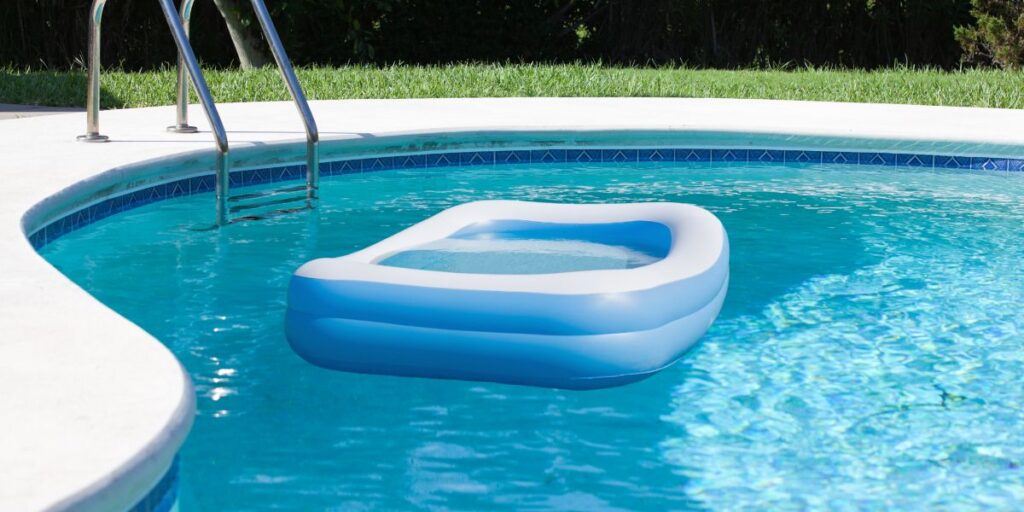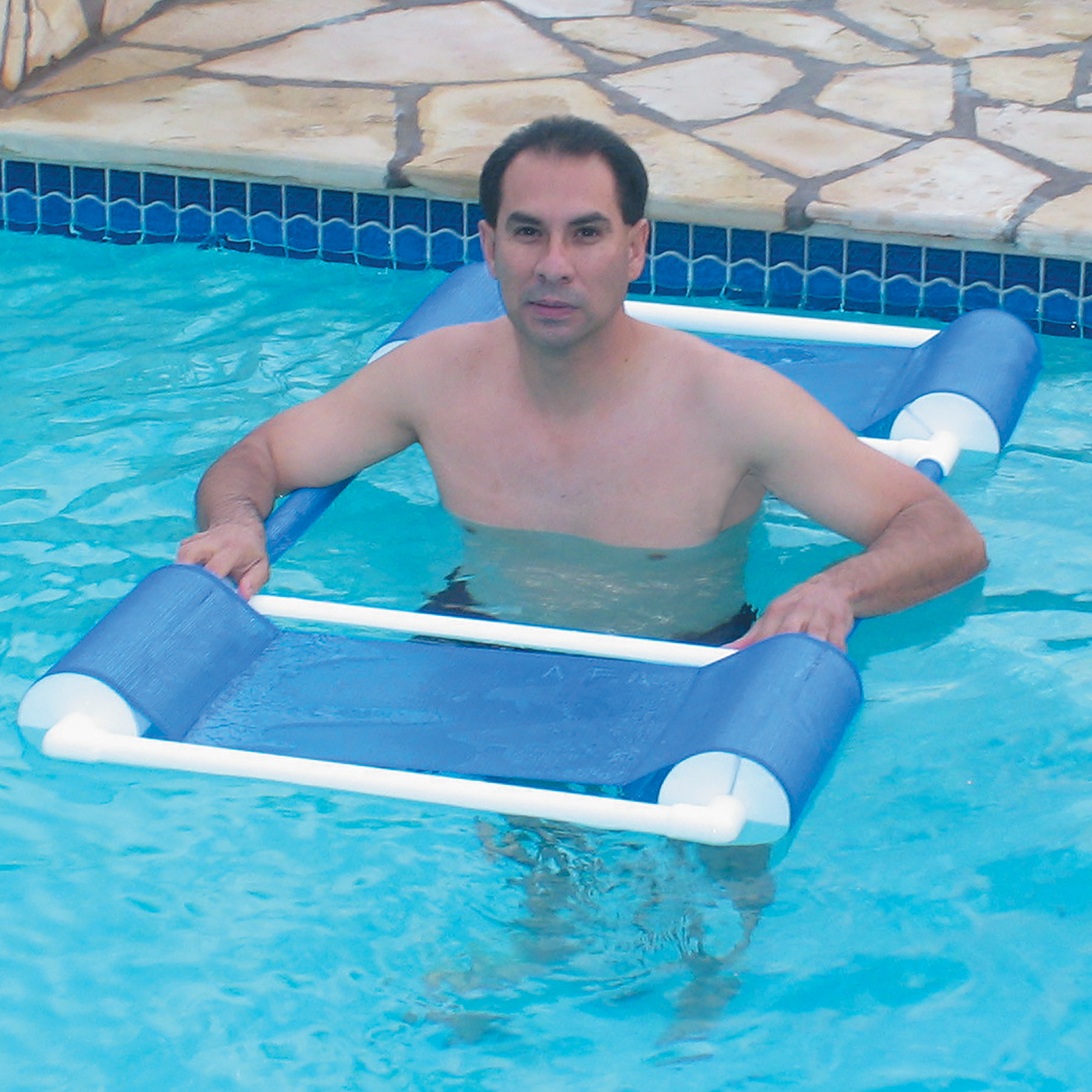Have you ever considered using inflatable pools for water therapy? Inflatable pools are not just for lounging and splashing around on a hot summer day. They can also serve as a fantastic tool for water therapy, providing numerous physical and mental health benefits. Whether you’re recovering from an injury, managing chronic pain, or simply looking for a way to relax and destress, water therapy in an inflatable pool can be a game-changer. In this article, we will explore the various ways in which inflatable pools can be used for water therapy, including exercises, relaxation techniques, and the therapeutic properties of warm water. So, grab your swimsuit and let’s dive into the world of inflatable pool therapy!
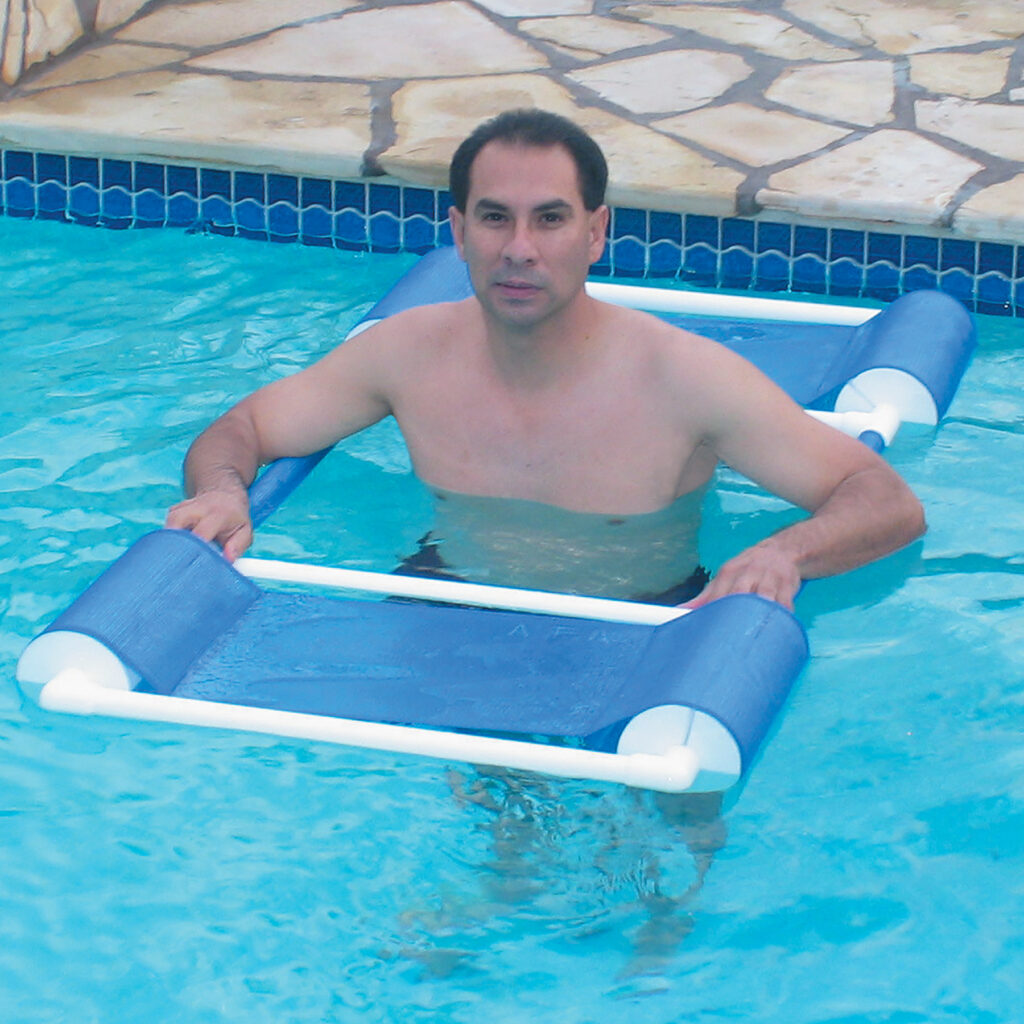
Benefits of Water Therapy
Water therapy is a popular and effective way to promote relaxation and relieve stress. When you immerse yourself in an inflatable pool, the soothing sensation of the water can help calm your mind and body. The buoyancy of the water also reduces the pressure on your joints and muscles, allowing for a more peaceful and serene experience.
In addition to relaxation, water therapy can have numerous benefits for your cardiovascular health. The resistance provided by the water can help improve your cardiovascular fitness and endurance. Whether you engage in gentle swimming or perform water exercises, your heart and lungs will be strengthened, leading to a healthier and more efficient cardiovascular system.
One of the primary advantages of using an inflatable pool for water therapy is its ability to ease joint and muscle pain. The warm water can help relax your muscles and increase blood flow to the affected areas, reducing inflammation and promoting healing. The buoyancy of the water also provides a weightless environment, relieving pressure on your joints and allowing for greater mobility and pain relief.
Water therapy in an inflatable pool can also enhance your flexibility and range of motion. The gentle resistance of the water can help improve your joint flexibility and muscle elasticity. Performing exercises and stretches in the water can help increase your range of motion over time, making everyday movements easier and more comfortable.
Types of Inflatable Pools for Water Therapy
When it comes to choosing an inflatable pool for water therapy, there are several options available to suit different needs and preferences. Here are some of the most common types of inflatable pools for water therapy:
-
Inflatable hot tubs: These portable and easy-to-set-up pools are designed to provide a relaxing and therapeutic spa-like experience. They often come with built-in heating systems and massage jets for ultimate comfort and relaxation.
-
Inflatable therapy pools: These pools are specifically designed for therapeutic purposes, with features like adjustable temperature control, massage jets, and ergonomic seating. They are ideal for targeted water therapy exercises and hydrotherapy.
-
Inflatable hydrotherapy pools: Similar to therapy pools, hydrotherapy pools are designed to provide specific hydrotherapy treatments. These pools often have specialized features like underwater treadmills or resistance jets for versatile water therapy options.
-
Inflatable swimming pools with therapeutic features: These pools combine the benefits of swimming with therapeutic features like massage jets, underwater lights, and adjustable water flow. They offer a multifunctional space for relaxation, exercise, and therapy.
Choosing the Right Inflatable Pool for Water Therapy
When selecting an inflatable pool for water therapy, there are several factors to consider to ensure you choose the right one for your needs. Here are some key considerations:
-
Size considerations: Determine the size of the inflatable pool based on the available space and the number of people using it. Consider whether you need a pool for individual therapy sessions or if you want to accommodate multiple people.
-
Portability and storage: If you plan to use the inflatable pool outdoors or if you have limited space, opt for a pool that is easy to inflate, deflate, and store. Look for pools that come with a carrying bag or storage case for convenience.
-
Durability and materials: Check the quality of the inflatable pool and ensure it is made from durable materials that can withstand consistent use. Look for features like reinforced seams and puncture-resistant materials for longevity.
-
Features for water therapy: Consider the specific features that are important for your water therapy needs. This could include massage jets, adjustable temperature controls, or specialized seating options.
-
Budget considerations: Determine your budget and find an inflatable pool that meets your needs while staying within your price range. Consider the long-term benefits and value for money when making your decision.
Setting Up an Inflatable Pool for Water Therapy
Once you have chosen the right inflatable pool for your water therapy needs, it’s important to properly set it up to ensure a safe and enjoyable experience. Here are the steps to follow for setting up an inflatable pool:
-
Selecting the appropriate location: Choose a flat and level area for your inflatable pool. Ensure there are no sharp objects or debris that could puncture the pool. Consider factors like privacy, access to water and power sources, and sun exposure.
-
Inflation and assembly: Follow the manufacturer’s instructions to properly inflate and assemble the pool. Most inflatable pools come with an air pump or can be inflated using an electric pump. Make sure all the air chambers are fully inflated and secure.
-
Water filtration and treatment: Install a water filtration system to keep the pool water clean and safe. Depending on the size of the pool, you may need a filter pump or a separate filtration unit. Treat the water with appropriate chemicals to maintain proper sanitation levels.
-
Adding therapeutic elements: If your inflatable pool has optional therapeutic features like jets or bubbles, ensure they are set up according to the manufacturer’s instructions. Test them to ensure they are functioning properly before entering the pool.
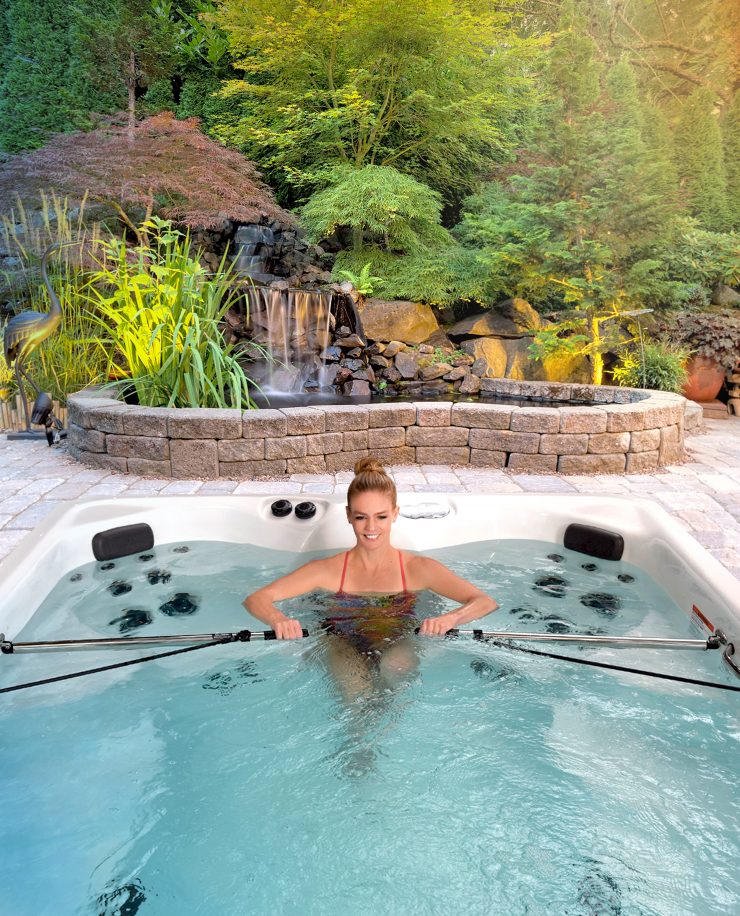
Water Therapy Techniques in Inflatable Pools
Once your inflatable pool is set up and ready, you can begin exploring various water therapy techniques. Here are some techniques and exercises you can try in your inflatable pool:
-
Aquatic exercises and stretches: Water provides a low-impact environment for exercises and stretches that can improve strength, flexibility, and range of motion. Try exercises like water walking, leg lifts, arm circles, and gentle stretches.
-
Massage and hydrotherapy: If your inflatable pool has massage jets or bubbles, utilize them for hydrotherapy sessions. The jets can target specific areas of your body for massage and relaxation. Adjust the intensity and position of the jets to suit your needs.
-
Hydrostatic pressure therapy: The pressure exerted by the water can help improve circulation, reduce swelling, and alleviate joint pain. Stand in the water and perform exercises like knee lifts, marching, or gentle kicking to experience the benefits of hydrostatic pressure therapy.
-
Floatation therapy: Simply floating in the water can promote deep relaxation and stress relief. Use pool noodles or floatation devices to support your body while you float. Focus on your breathing and allow the water to take your weight, leading to a calming and meditative experience.
Safety Precautions for Water Therapy in Inflatable Pools
While water therapy in inflatable pools can offer numerous benefits, it’s important to prioritize safety to prevent accidents or injuries. Here are some safety precautions to keep in mind:
-
Supervision and assistance: Ensure that someone is present to supervise and assist, especially if you have children or individuals with limited mobility using the pool. Never leave children unattended in the pool.
-
Water temperature regulation: Check the water temperature regularly to ensure it is comfortable and safe for therapy sessions. Avoid extremely hot water that can cause burns or scalds.
-
Proper water chemistry and hygiene: Maintain the correct water chemistry by regularly testing and adjusting the pH and chlorine levels. Follow the manufacturer’s guidelines for water treatment and use appropriate sanitizing products. Shower before entering the pool to remove any dirt or contaminants.
-
Preventing slips and falls: Install non-slip mats or flooring around the pool area to prevent slips and falls. Ensure the pool is securely set up and stable. Keep the surrounding area clear of any objects that could cause tripping hazards.
-
Medical contraindications: Consult with a healthcare professional before starting any water therapy program, especially if you have underlying medical conditions or injuries. Certain conditions may require specific precautions or modifications to your water therapy routine.
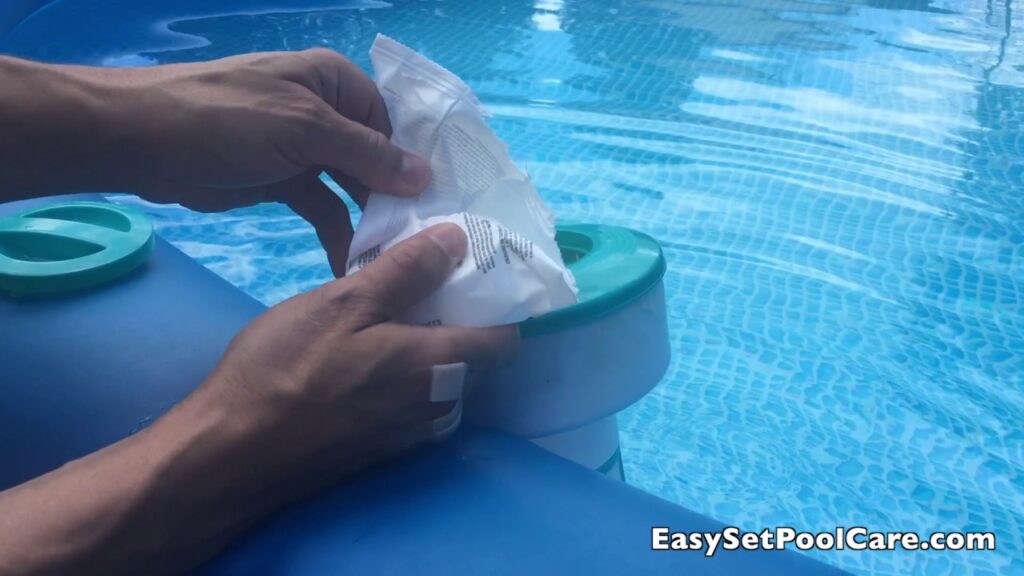
Maintenance and Upkeep of Inflatable Pools for Water Therapy
To ensure the longevity and optimal performance of your inflatable pool for water therapy, regular maintenance and upkeep are necessary. Here are some maintenance tasks to include in your routine:
-
Regular cleaning and sanitization: Clean the pool regularly to remove debris, dirt, and bacteria. Use a pool brush or sponge to scrub the walls and floor of the pool. Empty and refill the pool periodically to maintain water quality.
-
Managing water balance: Test the water regularly using water testing kits to monitor the pH, chlorine, and alkalinity levels. Adjust the chemical balance as needed to ensure the water is safe and comfortable for therapy sessions.
-
Repairing minor damages: Inspect the pool for any punctures, leaks, or damages. Patch any minor damages using repair kits or patches provided by the manufacturer. Follow the instructions carefully for effective repairs.
-
Storing and winterizing: If you plan to store your inflatable pool during the winter or for an extended period, ensure it is properly cleaned, dried, and deflated. Store it in a cool and dry place, away from direct sunlight and potential puncture hazards.
Accessories for Enhanced Water Therapy in Inflatable Pools
To enhance your water therapy experience in an inflatable pool, consider adding accessories that can elevate your relaxation and enjoyment. Here are some accessories to consider:
-
Waterproof speakers and music systems: Create a soothing and immersive atmosphere by playing calming music or nature sounds. Look for waterproof speakers or music systems specifically designed for use in pools.
-
Lighting options for ambience: Install LED lights or floating pool lights to create a dreamy and relaxing ambiance in your inflatable pool. Choose lights with adjustable colors and brightness levels for a personalized experience.
-
Comfortable seating and cushions: If your inflatable pool doesn’t have built-in seating, you can add comfortable cushions or pool floats to enhance your comfort and relaxation. Look for ergonomic designs and waterproof materials.
-
Therapeutic oils and aromatherapy: Use essential oils and aromatherapy diffusers to enhance the therapeutic benefits of your water therapy sessions. Choose scents like lavender, eucalyptus, or chamomile for a soothing and calming effect.
-
Exercise and resistance equipment: Incorporate exercise and resistance equipment designed for water use to enhance your water therapy workouts. This could include water dumbbells, resistance bands, or aquatic bikes for added resistance and muscle strengthening.

Inflatable Pool Water Therapy Programs and Classes
If you are new to water therapy or prefer guidance and instruction, there are various programs and classes available to help you get started. Here are some options to consider:
-
Professional water therapy programs: Seek out licensed physical therapists or aquatic therapists who specialize in water therapy. They can create personalized programs tailored to your specific needs and goals.
-
Community-based water therapy classes: Many community centers, fitness facilities, and wellness centers offer group water therapy classes. These classes are led by trained instructors and provide a supportive and motivating environment for water therapy.
-
Online resources and tutorials: Explore online resources, tutorials, and videos on water therapy techniques and exercises. There are numerous websites, blogs, and social media channels dedicated to sharing water therapy information and guidance.
Success Stories: Real-Life Experiences with Inflatable Pool Water Therapy
Real-life experiences and success stories can serve as inspiration and motivation for those considering inflatable pool water therapy. Here are some stories that showcase the transformative power of water therapy:
-
Personal testimonials and case studies: Read or listen to personal testimonials from individuals who have benefitted from inflatable pool water therapy. These stories often provide insights into the specific challenges faced and the positive outcomes experienced.
-
Impact on physical and mental well-being: Discover how inflatable pool water therapy has helped individuals improve their physical and mental well-being. From pain relief and improved mobility to reduced stress and enhanced relaxation, these stories highlight the holistic benefits of water therapy.
-
Transformational stories of recovery and improvement: Explore stories of individuals who have undergone remarkable recoveries or significant improvements in their health and quality of life through inflatable pool water therapy. These stories can be incredibly inspiring and showcase the potential for transformation.
In conclusion, inflatable pools provide a versatile and accessible option for water therapy. Whether you’re looking to relax and de-stress, improve cardiovascular health, ease joint and muscle pain, or enhance flexibility and range of motion, water therapy in an inflatable pool can be highly beneficial. By choosing the right inflatable pool, setting it up properly, and practicing various water therapy techniques, you can enjoy the numerous advantages of water therapy in the comfort of your own home. With the appropriate safety precautions, regular maintenance, and the addition of accessories, you can create a customized and enriching water therapy experience. So, dive in and discover the transformative power of inflatable pool water therapy for yourself.
